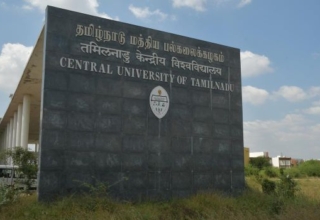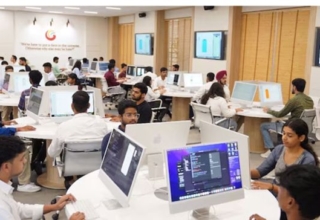
By Dr Manjula Pooja Shroff
 The intersection of artificial intelligence (AI) and education isn’t simply a distant prospect; it’s a reality. As we stand on the brink of this educational revolution, educators, students, and parents must try to grasp the potential of AI as a classroom collaborator and enrich the educational futures for all students. Imagine a world where students receive personalised guidance, build strong relationships with teachers, and gain appropriate recognition for their achievements.
The intersection of artificial intelligence (AI) and education isn’t simply a distant prospect; it’s a reality. As we stand on the brink of this educational revolution, educators, students, and parents must try to grasp the potential of AI as a classroom collaborator and enrich the educational futures for all students. Imagine a world where students receive personalised guidance, build strong relationships with teachers, and gain appropriate recognition for their achievements.
Educators must adopt AI
There is no substitute for hands-on experience when it comes to learning AI. Its potential in education can only be realized through both responsible and well-informed adoption.
My advice to educators is to start by experimenting with AI tools, with the aim of becoming as well-versed in the technology as they possibly can. In addition, the integration of AI in routine work can simplify numerous administrative tasks and allow teachers to engage more meaningfully with students.
Students are already using AI
There are plenty of ways artificial intelligence can redefine the classroom experience. But the assumption that students are already engaging with AI outside school might perhaps be more accurate than many educators think.
While we are all still adapting to this new technology, students, despite their ability to grasp the latest innovations, need guidance when it comes to AI. They need structured direction on how to make use of these tools effectively and ethically so that they can become responsible digital citizens. Giving original thoughts and idea inputs to generate content and refining it as per their requirement is important to make it a better and effective tool. Students must be taught the methods to do this and not use only AI generated material indiscriminately.
Personalizing Learning Experiences
Research consistently shows that one-on-one tutoring can dramatically improve educational outcomes. Yet, scaling personalized tutoring for every student presents significant financial challenges.
AI, on the other hand, provides a promising solution to this issue. By leveraging it, teachers can customize educational experiences for each learner and address a range of learning preferences through generating customized Individualized Education Program (IEPs) for specific learning needs.
Analysing the pitfalls
In my view, artificial intelligence has the power to solve some of the largest issues facing education today. Rapid technological advancements do, however, come with a number of risks and difficulties.
How can we make sure AI really meets the requirements of diverse students? What learning outcomes are being assessed, hence what level of AI is acceptable? What security measures are needed to preserve the privacy of student data? Furthermore, in the context of digital learning, how can we preserve the vital personal ties that exist between teachers and students?
As we move forward, continuing discussions between educators, and policymakers will be essential to building a future in which AI enhances and supports every student’s educational experience. By encouraging cooperation and adopting new innovations, we can ensure that AI serves as a revolutionary ally in nurturing the next generation of learners.
About the Author:
Dr Manjula Pooja Shroff, the MD and CEO of Kalorex Group, Author, Edupreneur, Vlogger, Podcaster, Life Coach, and much more. With over 60 institutions, she has influenced the lives of more than 88,000 students over 29 years. Last year, Kalorex Group launched the AI Avatar and Clone of Dr. Shroff called MAYA – India’s first Teacher Mentor.










